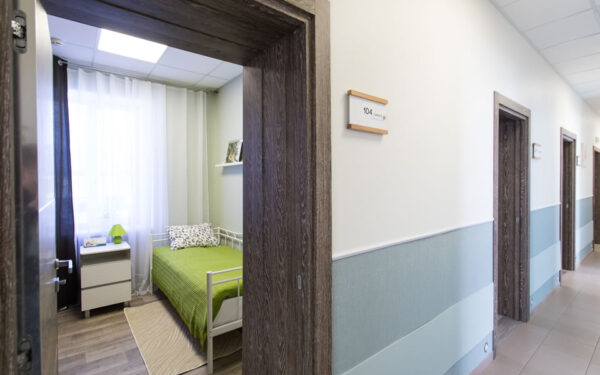Pandemic Reflections with Geer CFO Shaun Powell
The last 18 months has required many adjustments in light of the pandemic and as a result, it is important that we take time to connect with our clients to understand where they stand navigating this crisis, in hopes of positioning ourselves to better service their needs.
Shaun Powell is CFO at Geer Village Senior Community, a skilled nursing and assisted living facility located in the northwest corner of Connecticut. Geer Village is a nonprofit organization encompassing five 501(c)(3) entities: Geer Village Nursing & Rehabilitation Center, Geer Village Lodge, Geer Village Corporation, Geer Village Beckley House and Geer Village Foundation.
Shaun graciously agreed to share his insights into how the COVID-19 pandemic has affected the organization since the crisis began 18 months ago and how it is likely to continuing impacting operations for the foreseeable future.
What is the biggest challenge the organization faced or is currently facing and how are you adjusting to address this challenge?
Shaun indicated that Geer’s biggest challenge is trying to rebuild its census back to pre-COVID levels. On the skilled nursing side of the business, management is trying to ensure that referral partners know about Geer’s excellent track record of keeping COVID out of the facility, and that Geer is ready (through improvements related to the state’s COVID protocols) and able to admit new residents.
On the assisted and independent senior living sides of the business, Geer has engaged a marketing firm to drive awareness and referrals. Management knows that there is lots of pent-up demand for services, but the organization needs to reassure families that coming to Geer is a safe alternative to staying at home.
How is your organization different post-COVID?
The biggest change is how the Geer team meets and interacts on a daily basis. At the beginning of the pandemic, the organization began to conduct meetings by Zoom and Shaun believes that will continue post-pandemic. With employees distributed across three buildings and some working remotely, it is far more efficient to meet virtually. In-person meetings will return, but on a very selective basis.
With the organization forced to become more IT-focused because of the pandemic, how are you handling cybersecurity risks?
The organization outsources its IT function. At the beginning of the pandemic, Geer’s leaders met frequently with the vendor to ensure that cybersecurity was top of mind as they made certain decisions. Internally, management continually met with department teams to ensure that ever-evolving cyber risks were communicated to all employees. Equally important were the in-service trainings managers held to ensure that employees were aware of phishing email threats and other types of risks they might encounter, and how to avoid becoming a victim.
Additionally, management ensured that IT needs were addressed at the infrastructure level. As a result, the organization upgraded its internal wi-fi capabilities and made significant hardware upgrades to allow more employees to work virtually.
Staffing shortages continue to be an issue for many organizations – how is Geer handling (or planning to handle) this issue?
The organization took advantage of Department of Social Services funding and other COVID relief programs and passed those savings on to employees through pandemic pay and bonuses for working through extremely difficult times. Management ensured that employees’ work environment was as safe as possible given the circumstances, to provide an added level of comfort to the Geer team.
The organization has tried to be an industry leader by offering top wages and various scheduling options. Geer increased the size of its recruiting department and has challenged recruiters to focus on the employees who will, in turn, drive employee retention.
Are there any positives that you can draw on because of COVID or your experience during the pandemic?
Shaun believes that organizations and the people within those organizations have learned how to think and operate out of their comfort zones. He noted that everyone was challenged to perform under circumstances they could never have imagined and emerged as better professionals– — a testament to our collective resolve.
Any advice for other CFOs in healthcare or not-for-profit settings as they continue to navigate these unprecedented times?
Shaun’s best advice is to “be patient and nimble.” He added that the regulatory requirements surrounding much of the stimulus monies the healthcare industry received were changing rapidly. As an example, rushing to apply for Paycheck Protection Program loan forgiveness in mid-2020 was not necessarily the best option. As the rules evolved around all the different moving parts, there were times when waiting to apply for forgiveness was advantageous.










